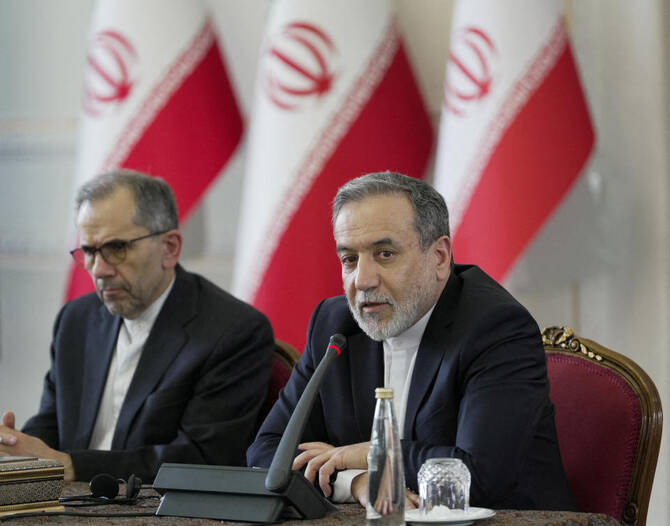Renewed efforts to salvage the faltering 2015 nuclear deal will take center stage in Geneva on Tuesday, where Iranian officials will meet with representatives from Britain, France, Germany, and the European Union, Iranian state media announced on Monday.
The talks, set to be held at the level of deputy foreign ministers, mark yet another attempt to bridge widening gaps over the Joint Comprehensive Plan of Action (JCPOA), the formal title of the nuclear agreement signed nearly a decade ago.
The deal originally aimed to limit Iran’s nuclear activities in exchange for relief from crippling international sanctions.
State television in Tehran reported, “On Tuesday, Iran and the three European parties to the 2015 nuclear deal, along with the European Union, will hold a new round of talks at the level of deputy foreign ministers in Geneva.”
The discussions come at a delicate moment. Iran has continued to expand its uranium enrichment program, exceeding the JCPOA’s limits, while Western powers accuse Tehran of advancing capabilities that could shorten its “breakout time” to develop a nuclear weapon.
Iran maintains that its program is strictly for peaceful purposes, including energy production and medical research.
For the Europeans, the upcoming meeting represents an urgent diplomatic effort to keep the JCPOA framework alive, despite the withdrawal of the United States from the deal in 2018 under former President Donald Trump.
Since then, efforts to restore the agreement have faced repeated obstacles, including disagreements over sanctions relief, monitoring mechanisms, and regional security concerns.
Analysts note that Tuesday’s Geneva meeting may serve as a preparatory round ahead of more formal negotiations later this year. “This is less about a breakthrough and more about laying groundwork for future compromises,” said a European diplomat familiar with the talks. “But even incremental progress is crucial at this stage.”
The European Union, which has consistently acted as a mediator, is expected to push both sides toward confidence-building measures. These could include limitations on Iran’s enrichment activities in exchange for phased sanction relief targeting critical sectors like banking and oil exports.
Regional dynamics add another layer of complexity. Rising tensions in the Middle East, particularly between Iran and Israel, have heightened concerns about the potential for escalation. At the same time, Western powers are grappling with energy security issues, especially in the wake of disruptions in global supply chains.
Iranian officials, for their part, have emphasized the need for “practical guarantees” from European partners, insisting that any revived deal must protect Tehran from future unilateral withdrawals by signatory states.
While expectations remain cautious, the resumption of dialogue itself is being seen as a positive step. “The fact that these talks are still happening shows that diplomacy is not dead,” commented a senior EU official.
As diplomats prepare to gather in Geneva, both sides face pressure to show flexibility. The coming days could determine whether the JCPOA remains salvageable or fades further into uncertainty.
This article was created using automation technology and was thoroughly edited and fact-checked by one of our editorial staff members

